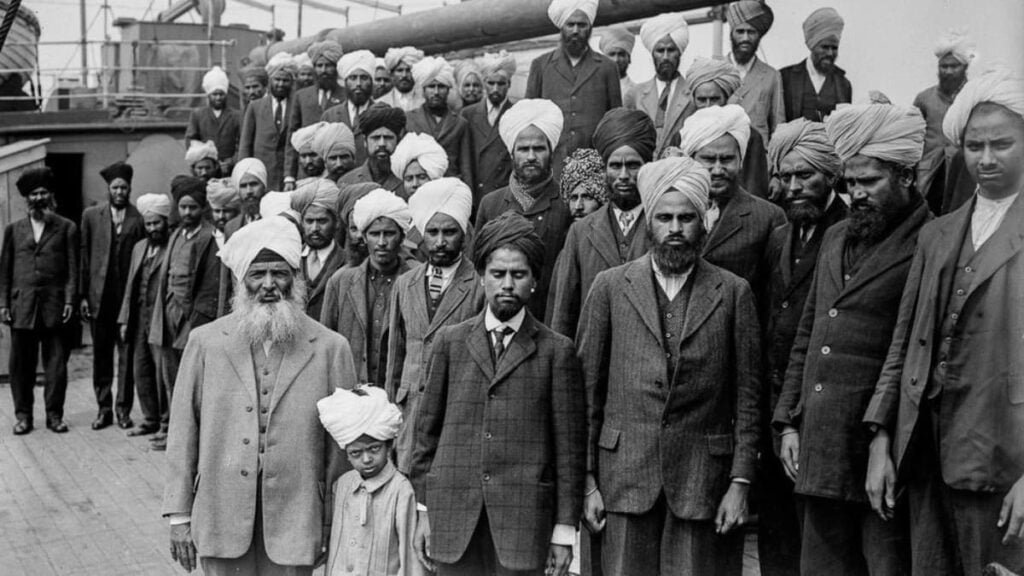South Asians in America, including individuals of Indian, Pakistani, Bangladeshi, Sri Lankan, and Nepali descent, have become a notable force in elections and policymaking.
Their influence spans various aspects of the political landscape, from elected officials and political funders to voters, organizations, and activists.
This article delves into the multifaceted impact of South Asians in American elections and politics, highlighting their growing presence and contributions.

History of South Asians in Politics
The Ghadar Party, a global movement of Indians residing abroad, sought to liberate India from British colonial rule. Originating from a meeting held in the United States, where numerous Indians resided and labored, the party gained momentum.
With the outbreak of World War I in 1914, members of the Ghadar Party journeyed back to Punjab to actively participate in the struggle for India’s independence.
The Samosa Caucus
The Samosa Caucus, also known as the South Asian American Caucus, comprises South Asian American members of the United States Congress.
Representative Raja Krishnamoorthi of Illinois coined the term “Samosa Caucus” in 2018, symbolizing a strong cultural identity with samosas.
The cultural reference highlights a deep link to South Asian heritage, resonating with South Asian Americans, including members of Congress.
This group reflects the increasing political clout of South Asian Americans and seeks to tackle issues pertinent to their community.
Including lawmakers of Indian, Pakistani, Bangladeshi, Sri Lankan, and Nepali descent, the caucus advocates for policies concerning immigration, civil rights, healthcare, and education affecting South Asian Americans and other minority groups.
Through legislative endeavors and advocacy, the Samosa Caucus endeavors to foster inclusivity, diversity, and representation in American politics.
American South Asian Politicians
The number of South Asians holding political office in the United States has been steadily increasing.
As of 2022, there were over 100 elected officials of South Asian descent across various levels of government.
Notable figures include Kamala Harris, the first South Asian American Vice President of the United States, Pramila Jayapal, the first South Asian American woman elected to the U.S.
House of Representatives, and Raja Krishnamoorthi, a Congressman representing Illinois’ 8th district. These leaders have made significant strides in representing their communities and advocating for policies that resonate with South Asian Americans.
American South Asian Political Funders
In addition to holding political office, South Asians in the United States are actively involved in funding political campaigns and causes.
According to data from the Center for Responsive Politics, South Asian American donors contributed over $10 million to political campaigns during the 2020 election cycle.

American South Asian Think Tanks
South Asian American think tanks and policy institutes have emerged as influential voices in shaping public discourse and informing policymaking. Organizations such as the South Asian Americans Leading Together (SAALT) and the South Asian Bar Association (SABA) conduct research, analysis, and advocacy on issues ranging from immigration and healthcare to economic development and foreign policy. Through their research and policy recommendations, these organizations contribute to informed decision-making and facilitate dialogue on pressing societal challenges.
American South Asian Voters
South Asian American voters constitute a growing electoral bloc with significant sway in key battleground states. According to data, the number of registered South Asian American voters has increased by 139% since 2000. Their voting patterns reflect a diverse range of political affiliations and priorities, making them a sought-after demographic for political candidates seeking to secure electoral victories. In the 2020 presidential election, South Asian American voter turnout reached record levels, with an estimated 1.8 million South Asian Americans casting their ballots.
American South Asian Organizations
A myriad of South Asian American organizations across the country are mobilizing communities, promoting civic engagement, and advocating for policy reforms. From cultural associations to advocacy groups, these organizations serve as platforms for community empowerment and political participation. Organizations like the Indian American Impact Fund and the South Asian Network are actively involved in supporting South Asian American candidates and driving voter turnout efforts.
South Asians for America is a national, grassroots organization dedicated to the education, advocacy, engagement, and mobilization of the South Asian community in the United States at the local, state, and federal levels, to increase the civic engagement, political participation, and network of South Asians nationwide.
American South Asian Activists
South Asian American activists are at the forefront of social and political movements, advocating for racial justice, immigrant rights, and other pressing issues. Through grassroots organizing, direct action, and advocacy efforts, these activists are driving meaningful change and challenging systemic inequalities.
Some Notable activists in the South Asian American community include
Varun Nikore, Executive Director of the AAPI Victory Fund, and Deepa Iyer, author of “We Too Sing America: South Asian, Arab, Muslim, and Sikh Immigrants Shape Our Multiracial Future.” Vanita Gupta serves as President and CEO of The Leadership Conference on Civil and Human Rights, while Pramila Jayapal represents Washington’s 7th Congressional District in Congress.
Deepa Iyer is an activist, author, and Senior Advisor at Building Movement Project, and Rinku Sen is a writer, activist, and Executive Director of Narrative Initiative. Faiz Shakir, former Campaign Manager for Bernie Sanders, is a political advisor, and Ravi Bhalla is the Mayor of Hoboken, New Jersey, and a civil rights attorney. Anurima Bhargava is a civil rights lawyer and former Chief of the Educational Opportunities Section of the Civil Rights Division at the U.S. Department of Justice, and Sameera Fazili serves as the Deputy Director of the National Economic Council.
Fahd Ahmed is the Executive Director of Desis Rising Up and Moving (DRUM), and Deepak Bhargava is the former Executive Director of the Center for Community Change. Seema Nanda is the former CEO of the Democratic National Committee, and Neera Tanden is the President of the Center for American Progress.
Arjun Sethi is a civil rights lawyer, writer, and activist, and Kriti Sharma is the Co-founder of South Asian Americans Leading Together (SAALT). Anirvan Chatterjee is the Co-founder of Berkeley South Asian Radical History Walking Tour and Policy Director at Economic Security Project, while Karthick Ramakrishnan is a Professor of Public Policy and Political Science at the University of California, Riverside, and founder of AAPI Data.
Suman Raghunathan serves as the Executive Director of South Asian Americans Leading Together (SAALT), and Ami Bera is a Congressman representing California’s 7th Congressional District. Sejal Singh is an activist and former organizer at Know Your IX, and Manju Kulkarni is the Executive Director of Asian Pacific Policy and Planning Council (A3PCON).
Zahra Billoo is the Executive Director of the Council on American-Islamic Relations (CAIR) San Francisco Bay Area, while Rabiya Khan serves as the Executive Director of the Council of American Islamic Relations (CAIR) Florida. Faiza Ali is the Director of Programs at the Arab American Association of New York. Wajahat Ali is a writer, attorney, and co-host of the podcast “The Takeaway,” and Monami Maulik is the Executive Director of Desis Rising Up and Moving (DRUM).
Conclusion
The influence of South Asians in American elections and politics continues to grow, shaping policy agendas, electoral outcomes, and public discourse. From elected officials and political funders to voters, organizations, and activists, South Asians are making their mark on the American political landscape. As their presence and contributions continue to expand, the South Asian community is poised to play an increasingly influential role in shaping the future of American democracy.
About the Author
Dr. Tausif Malik is a social entrepreneur, publisher, and academician, renowned for his innovative ventures. He founded and publishes The Desi Buzz, GCC Startup News, Startup Berita, and Halal Biz News, amplifying entrepreneurship globally. Dr. Malik also spearheads AIMBSN, Halal Angels Network, and Startup Villages, fostering startup ecosystems. His groundbreaking initiative, RiseBack.org, offers affordable edtech solutions, providing Indian university programs starting at $50 per month and professional IT courses priced at $250-$350. Through his diverse endeavors, Dr. Malik empowers individuals with access to education and opportunities.


